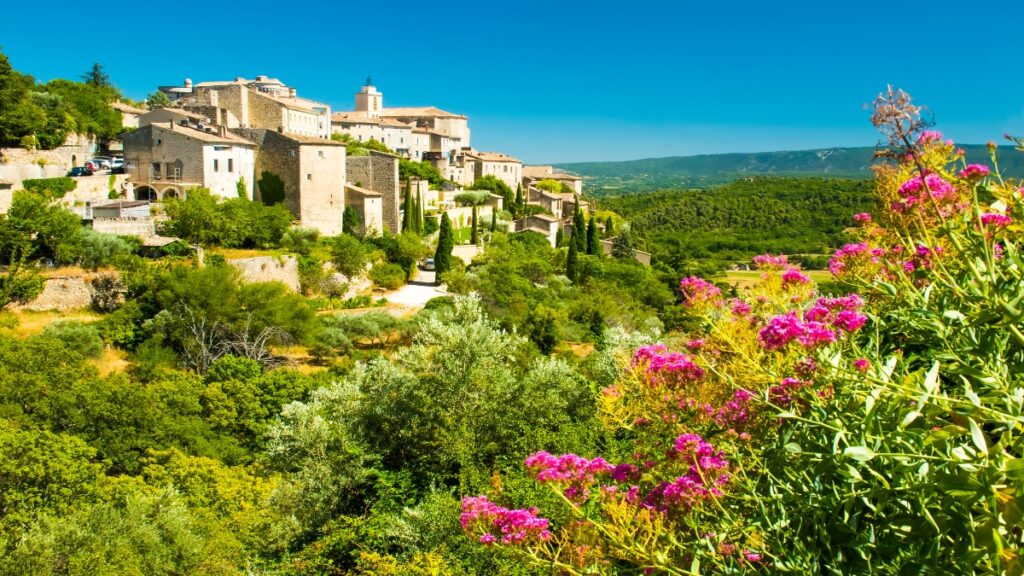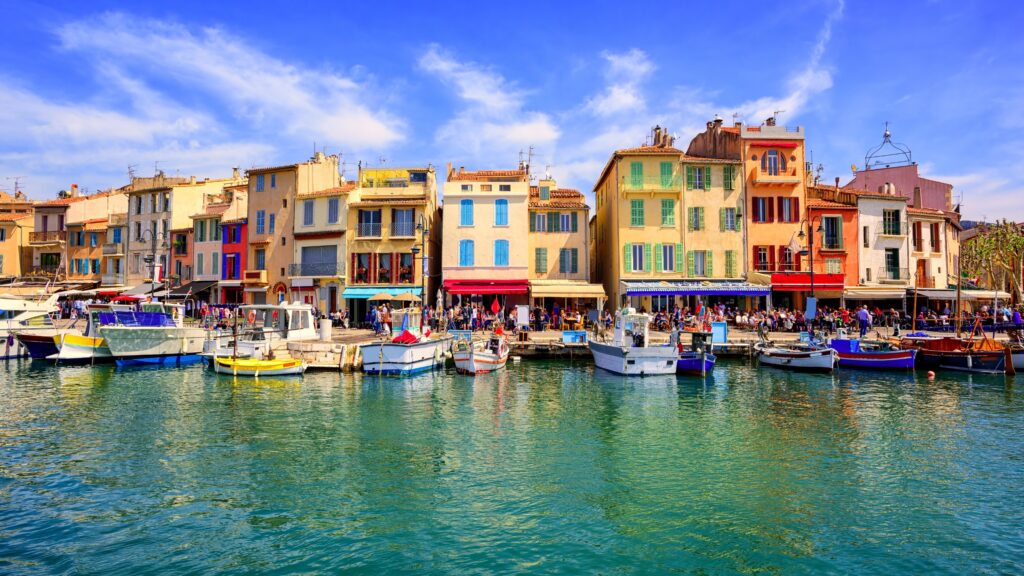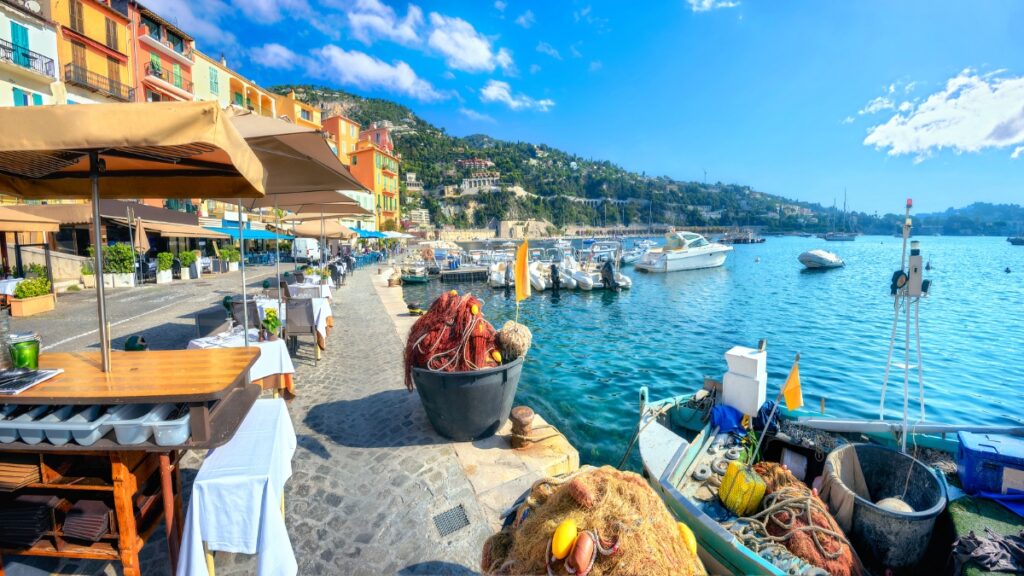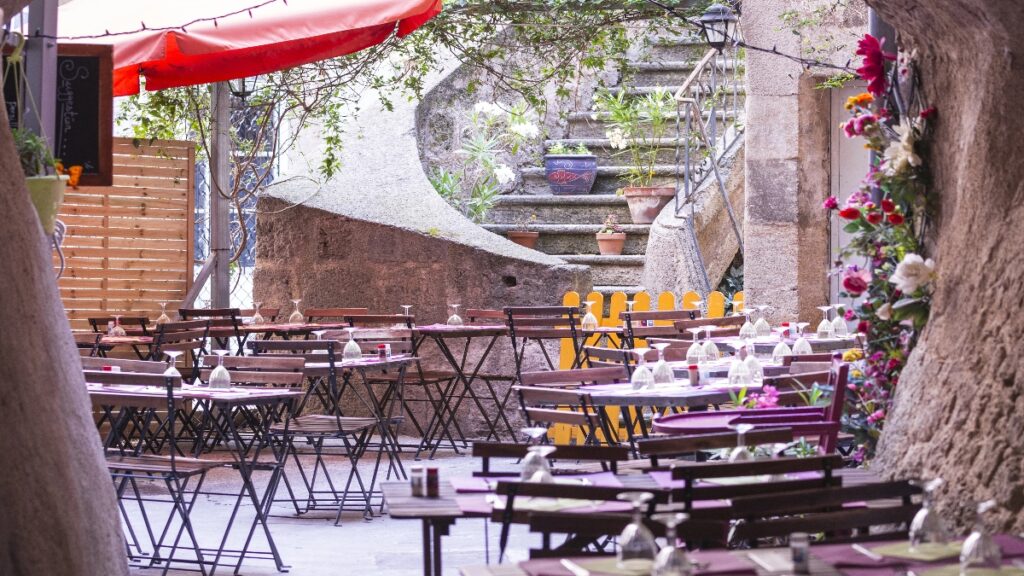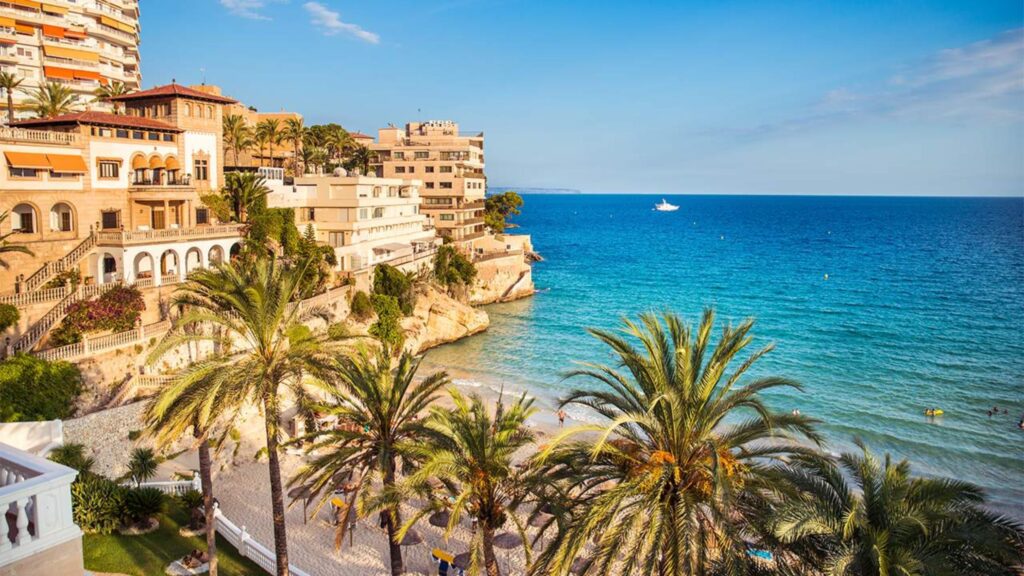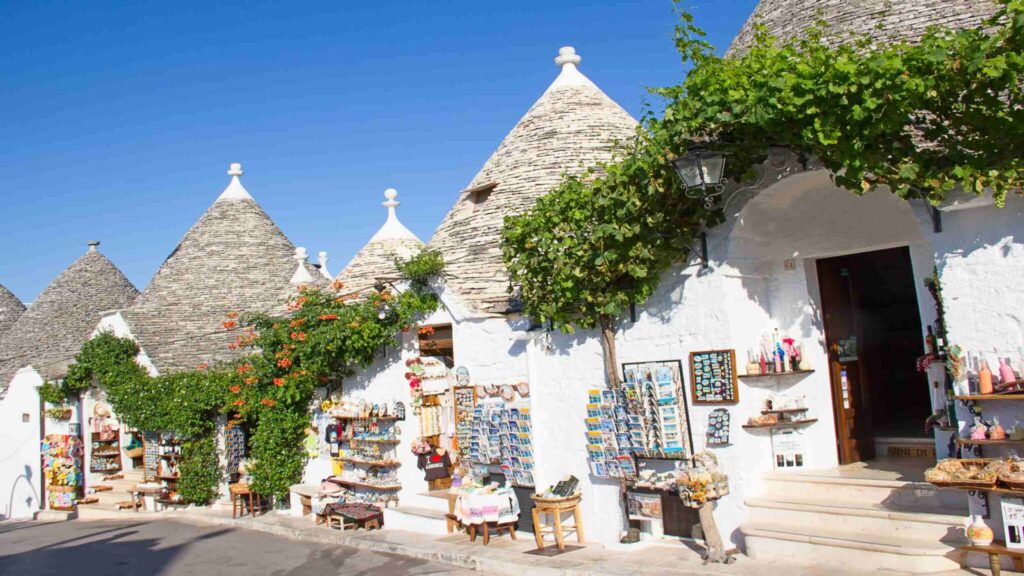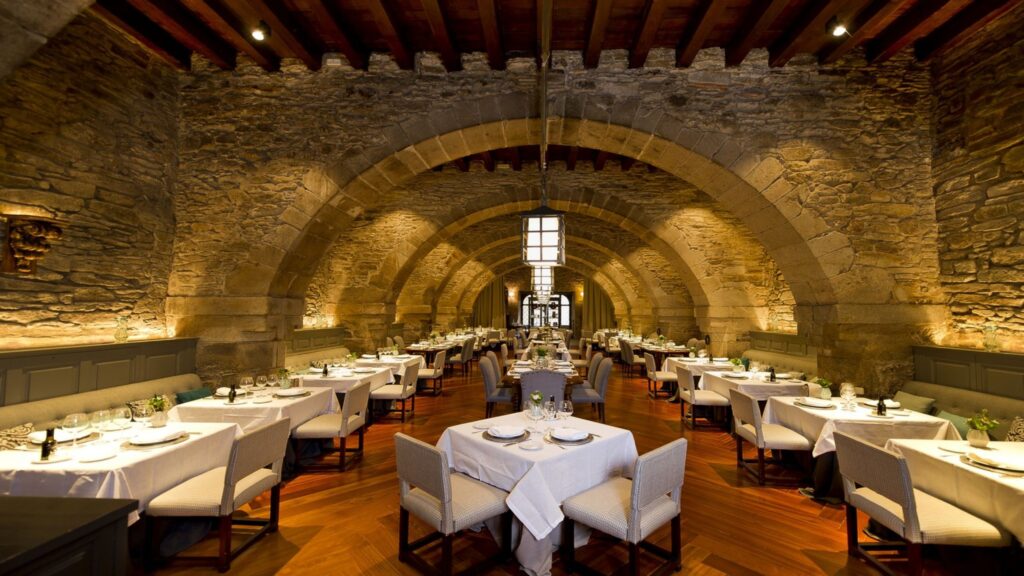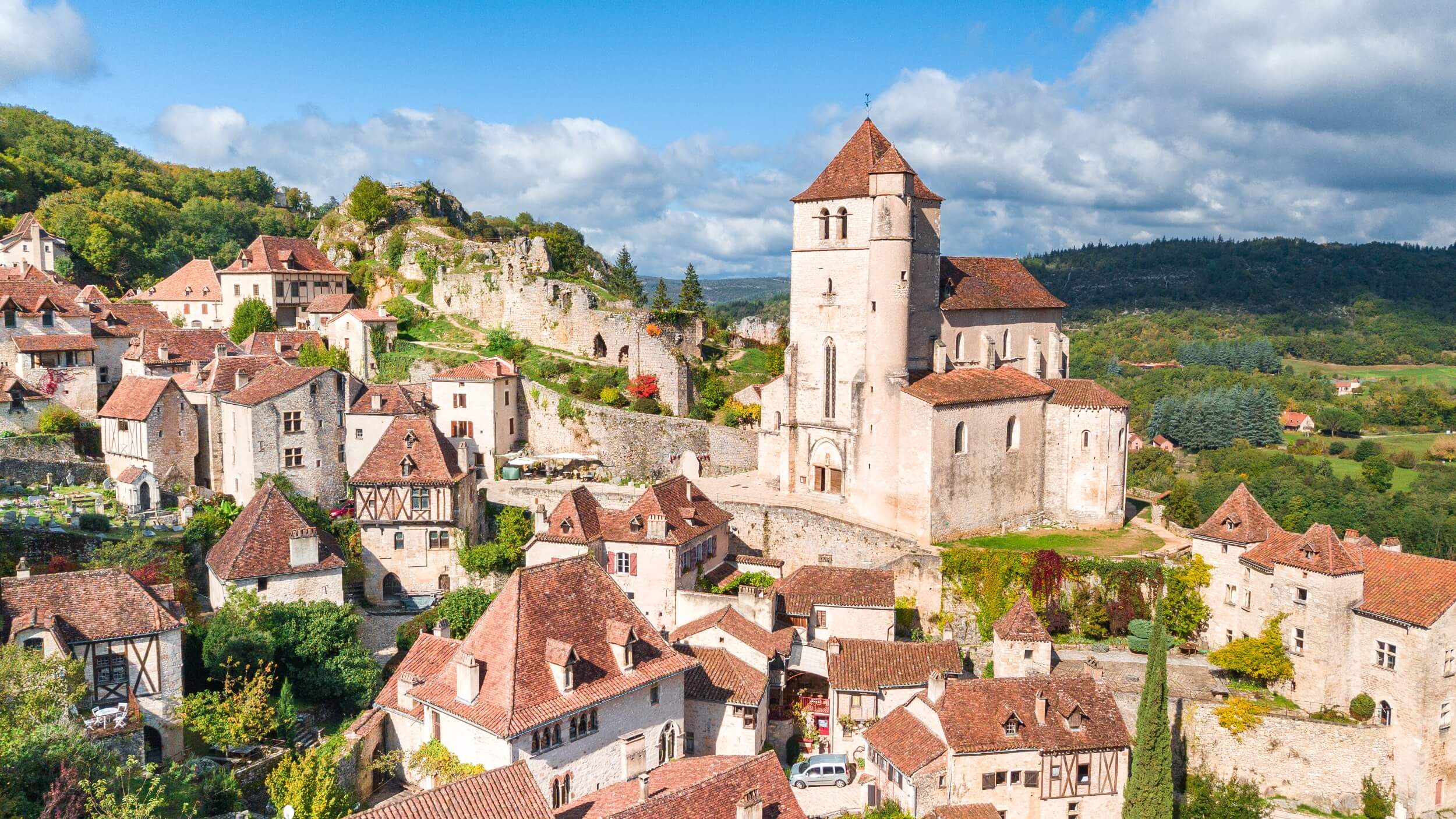
Discover French Countryside Towns Through Time
Rural Exploration in Ancient French Towns leads to quiet lanes and old stone walls in Saint-Paul-de-Vence. This small town’s art draws people who seek French countryside towns with lasting charm. High in the Alps-Maritimes, thick walls tell stories of past times.
Timeless French Countryside Towns Today
Top tip: Visit the Fondation Maeght modern art museum, home to works by Miró and Chagall.
Palace Ruins and Old Market Towns shape the views of historic Provins. The old town shows how people lived and traded in times long past. In fact, the UNESCO site keeps its old charm through careful work on each building.
Exploring Rural French Heritage Sites
Local attraction: The Tour César, a 12th-century octagonal keep, offers panoramic views.
The Architecture of Ancient Fortifications stands proud in many small towns. The strong walls of Rocamadour show how well past builders worked. Modern French countryside towns keep their old look while moving with the times. Such as the old stone walls that now hold lovely craft shops.
Place of interest: The Sanctuary of Rocamadour, with its famous Black Madonna.
Local Heritage Through the Ages lives on in the quiet streets of Vézelay. Stone homes line paths that wind up to the grand church. Most important, these old builds show us glimpses of past rural French life. At the same time, each stone step tells tales of those who walked here before.
Local activity: Join the annual wine harvest festivities in September.
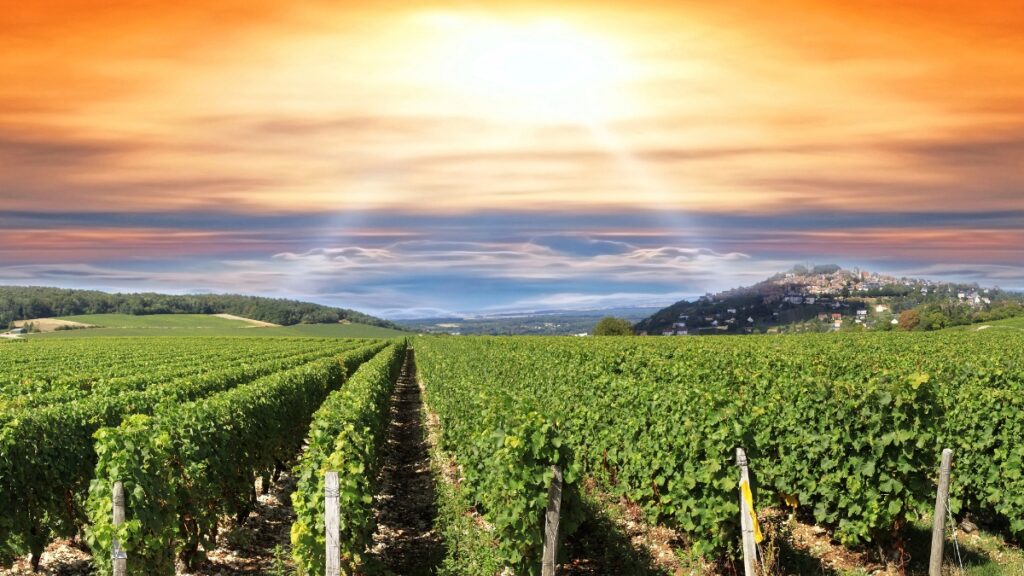
French Countryside Towns: Historic Charm and Culture
Timeless Village Scenes unfold daily in charming Sancerre. Additionally, the hilltop views stretch across vineyards where picturesque settlements dot the landscape. Meanwhile, morning mists curl around ancient stone walls that guard centuries of stories.
Exploring Historic Rural France
Local attraction: Visit the Tour des Fiefs, a medieval tower with panoramic views.
Weekly Markets and Traditions bring the square to life in Ploumanac’h. Furthermore, local fishers sell their catch beside farmers with seasonal produce. In fact, these communities keep age-old customs thriving today. Although times change, community spirit stays strong.
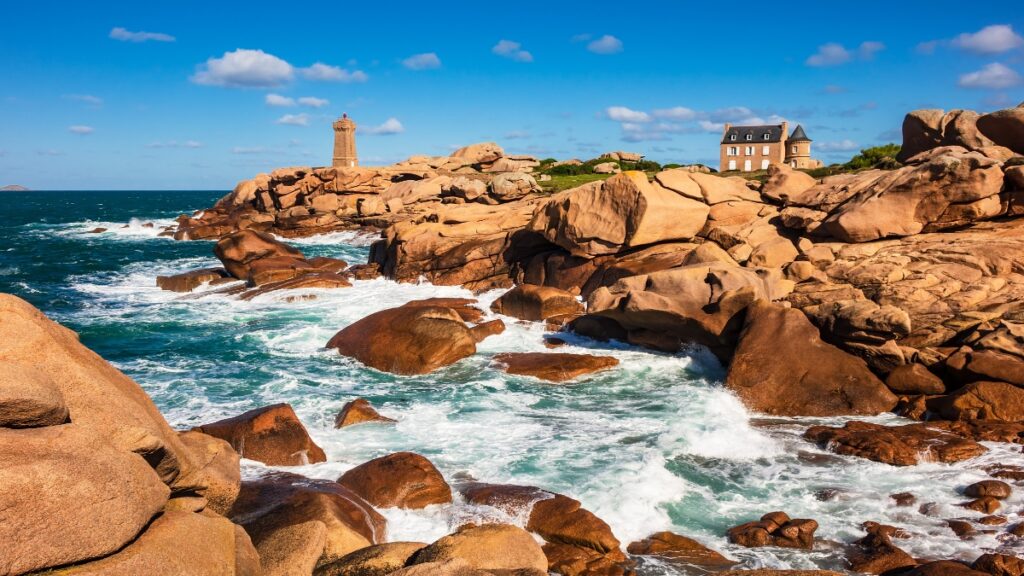
Timeless Village Life in France
Granite Coast Heritage shapes life in Perros-Guirec. Moreover, pink rock formations stand guard over beaches where maritime traditions are preserved. Even so, modern visitors find new ways to enjoy these ancient shores. Such as kayaking between the weathered stone arches.
Place of interest: The famous Pink Granite Coast lighthouses.
Maritime Culture lives on in Locronan. Stone merchants’ houses tell tales of sailing ships and traded goods. Most important, these stories echo through local festivals today. At the same time, each cobbled street holds centuries of memories.
Local activity: Join the guided twilight heritage walks every Thursday.
Village Traditions thrive in the heart of Concarneau. The walled old town buzzes with artisan workshops and seafood restaurants. In fact, exploring French countryside towns reveals how coastal life shapes local culture. Though seasons change, the connection to the sea remains constant.
Top tip: Walk the Customs Officers’ Path at sunset for breathtaking views.
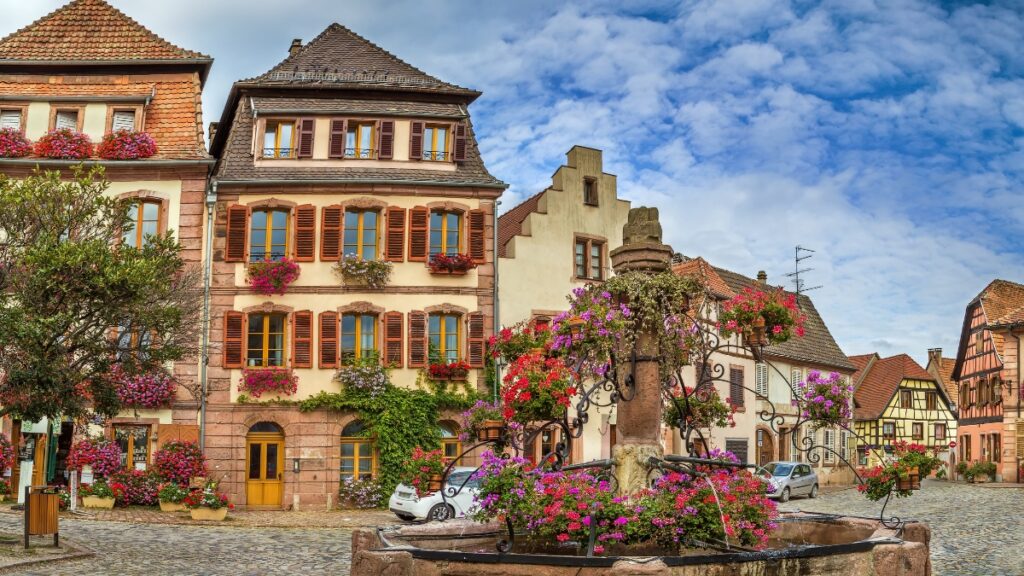
Medieval French Countryside Towns and Ancient Stories
Castle Towers and Ancient Walls rise above the streets of Bergheim. The Alsatian architecture tells stories from centuries past in this vibrant French countryside town. Nestled between vineyards, half-timbered houses show skilled craftsmanship from long ago.
Preserved Medieval Towns in France
Local attraction: Visit the 14th-century Ramparts Walk for panoramic views.
Traditional Crafts and Customs flourish in the workshops of Cordes-sur-Ciel. Furthermore, local artisans keep old skills alive through pottery and leather work. In fact, these villages maintain their medieval character through dedicated preservation. Although times change, ancient traditions remain strong.
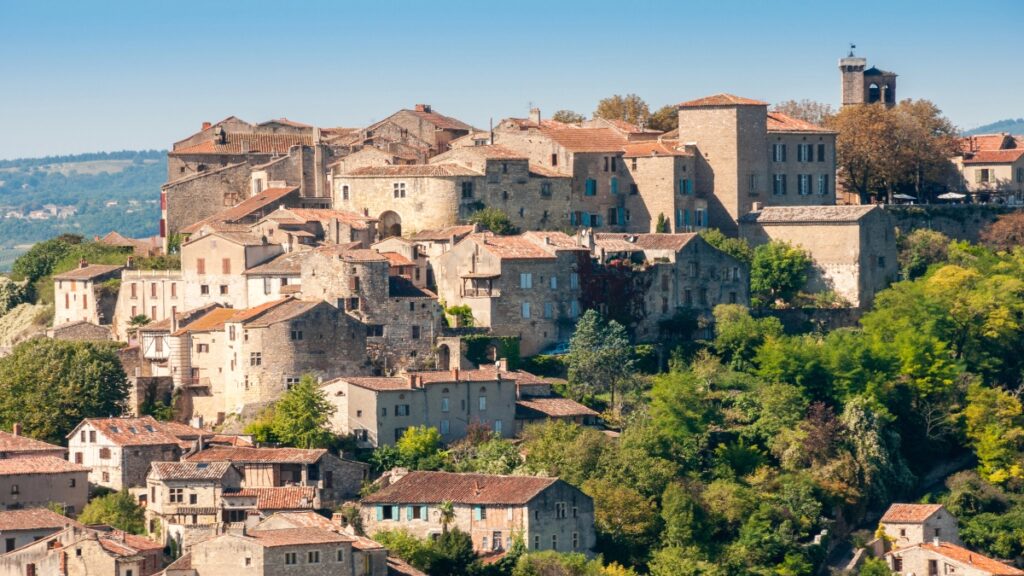
Historic French Village Life Today
Market Square Traditions bring colour to the streets of Riquewihr. Additionally, morning light catches the carved details of merchant houses where historic treasures preserve their stories. Even though modern cafes now serve local wines in historic cellars. Such as those beneath the ancient Dolder Tower.
Place of interest: The Thieves’ Tower Museum reveals medieval justice systems.
Ancient Trade Routes shaped the growth of Saint-Antonin-Noble-Val. Stone bridges span the Aveyron River where traders once crossed. Most important, these pathways still connect local communities today. At the same time, each cobbled street preserves tales of medieval merchants.
Local activity: Join a guided tour of the 12th-century town hall.
Heritage Markets continue to thrive in Sarlat-la-Canéda. Additionally, local farmers bring fresh produce to squares surrounded by golden stone buildings. In fact, exploring these historic villages reveals how medieval traditions live on. Although centuries pass, market day rhythms remain unchanged.
Top tip: Experience the Medieval Festival held every July.
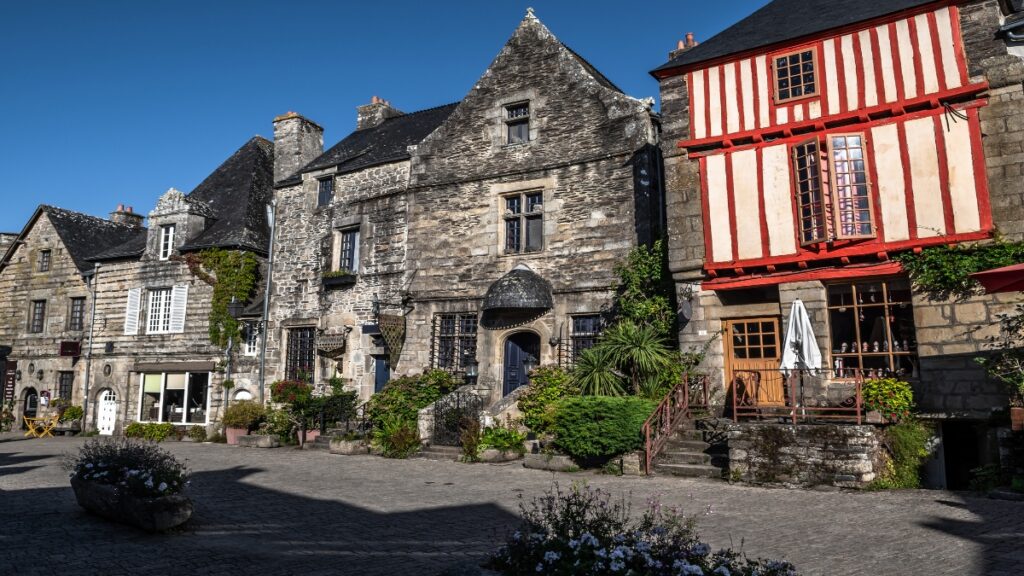
French Countryside Towns: Hidden Rural Treasures
Market Days and Local Life fill the squares of Rochefort-en-Terre. Most important bright flowers cascade from ancient stone walls in this cherished French countryside town. In contrast between half-timbered houses, local vendors display regional crafts with pride.
Hidden Gems in French Rural Towns
Local attraction: The illuminated castle ruins also glow at night from April to September.
Seasonal Festivals and Fairs bring joy to the streets of Kaysersberg. Furthermore, local wine growers share vintages from nearby slopes with eager visitors. In fact, these ancient villages come alive during harvest celebrations. Although each season has its charm, autumn holds special magic.
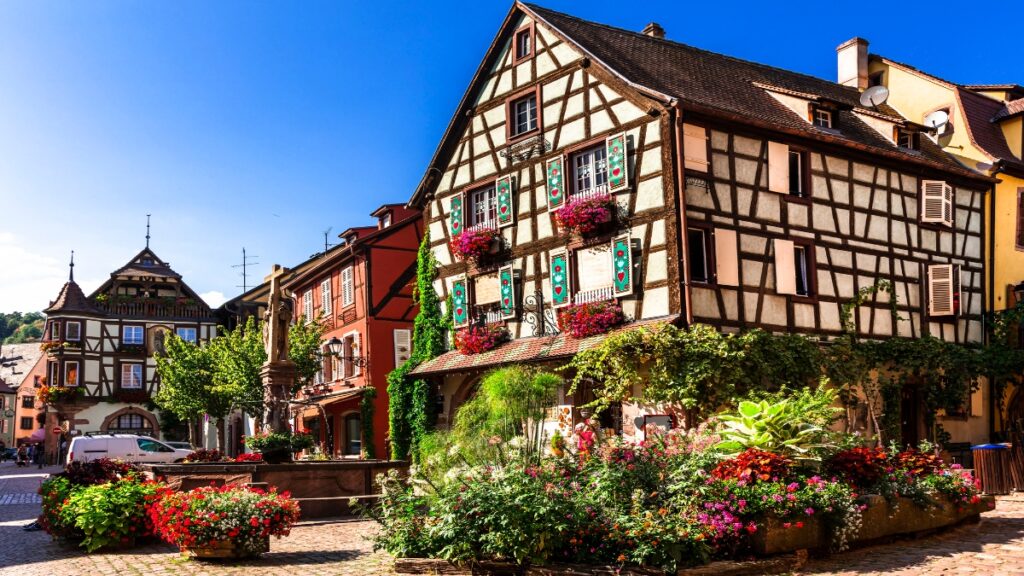
Discovering Rural French Culture
Ancient Craft Traditions thrive in the workshops of Beuvron-en-Auge. Local woodworkers shape oak beams where French countryside towns preserve traditional skills. Modern artists now work in restored medieval buildings. Such as the galleries along Rue des Forges.
Place of interest: The 15th-century market hall hosts weekly produce markets.
Rural Heritage Sites draw visitors to Barfleur. Stone houses line the harbour where fishing boats still bring fresh catches. Most important, these communities keep old customs alive through daily practice. At the same time, each narrow street tells stories of maritime history.
Local activity: Try traditional seafood dishes at the port restaurants.
Traditional Skills flourish in Domme. Master craftspeople pass down techniques that shaped these hilltop communities. In fact, exploring French countryside towns reveals living museums of rural expertise. Though methods evolve, the essence of craftsmanship endures.
Top tip: Visit the Albert Schweitzer Museum in the quieter spring months.
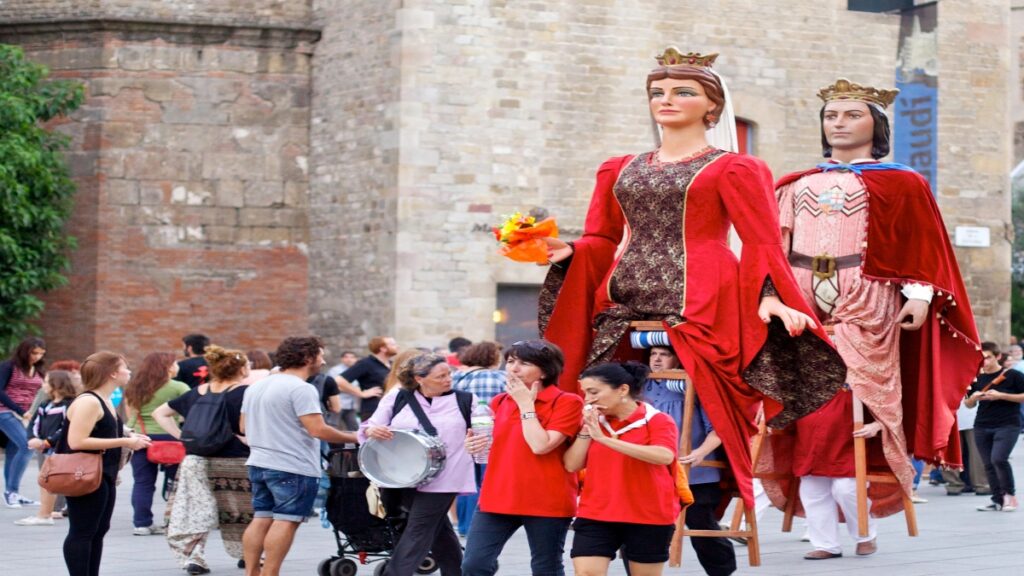
Traditional Life in French Countryside Towns
Local Festivals and Markets fill the streets of Conques with colour and life. Certainly, old houses stand tall around squares where people share local food and crafts. Particularly, the calm pace of village life flows under stone arches that tell tales of the past.
Authentic French Countryside Towns Today
Top tip: Experience the autumn truffle markets from October to December.
Village Customs and Culture shape daily life in Flavigny-sur-Ozerain. Additionally, bakers use old recipes that their families have known for many years. In fact, these small communities keep their old ways through simple daily tasks. Although times change, village traditions stay strong.
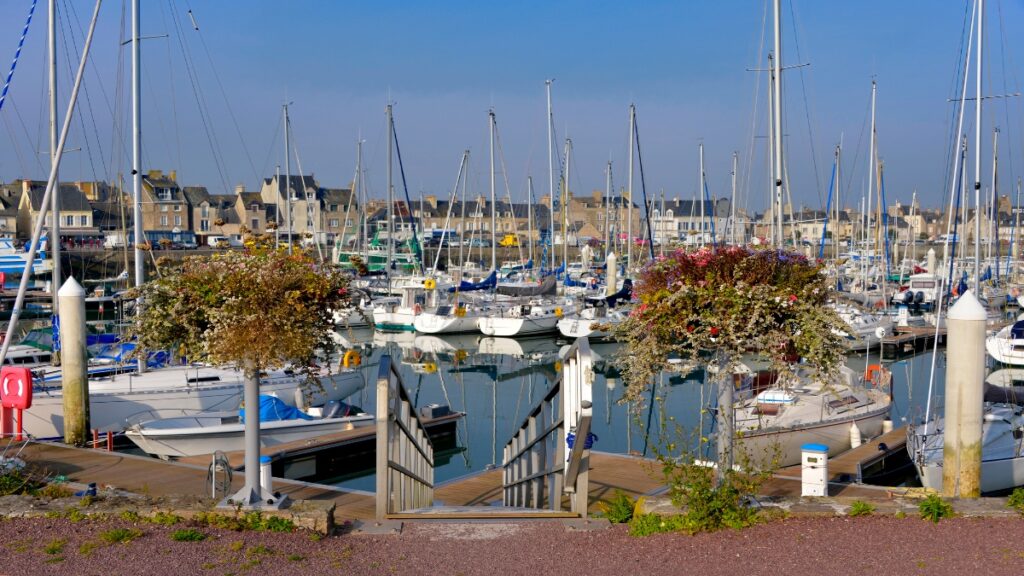
Discovering Rural French Heritage
Place of interest: Visit the ancient Benedictine abbey and its famous anise sweet workshop.
Morning Routines start as the sun rises over Montrésor, where stone walls catch the first light. While fresh bread smells drift from small bakeries along the old streets. These French countryside towns blend past and present with care.
Local attraction: The Renaissance château overlooks the medieval village.
Seasonal Celebrations bring the people of Pesmes together through shared customs. Harvest times mean shared meals and songs under the old trees. Most important, these events keep village bonds strong through the years. At the same time, each feast adds new stories to tell.
Local activity: Join the traditional grape harvest festivities in September.
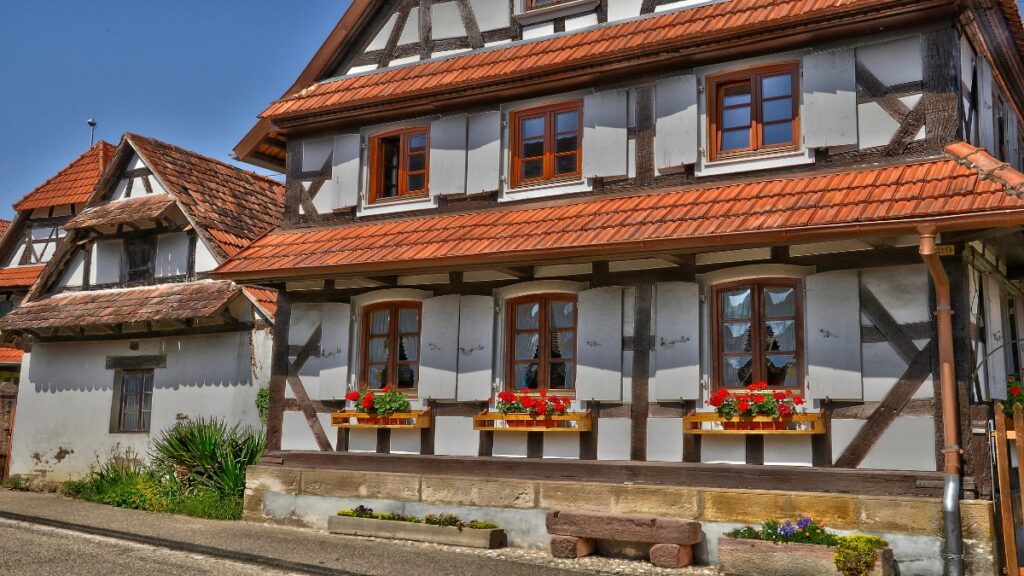
Exploring Authentic French Village Heritage
Village Life and Customs shape the rhythm of days in Hunspach, where traditions guide each season’s activities. Such as white houses with dark timber beams line narrow streets where locals tend their bright flower boxes. Most important, the charm of French countryside towns lives in these quiet moments and cherished daily rituals.
Historic French Village Architecture
Top tip: Visit during December to see the famous advent window displays.
Morning Markets bring fresh life to the square in Eguisheim, where time seems to stand still among medieval walls. Local cheese makers set up their stalls as church bells mark the passing hours in age-old rhythms. In fact, these French countryside towns keep old ways through daily habits and shared customs.
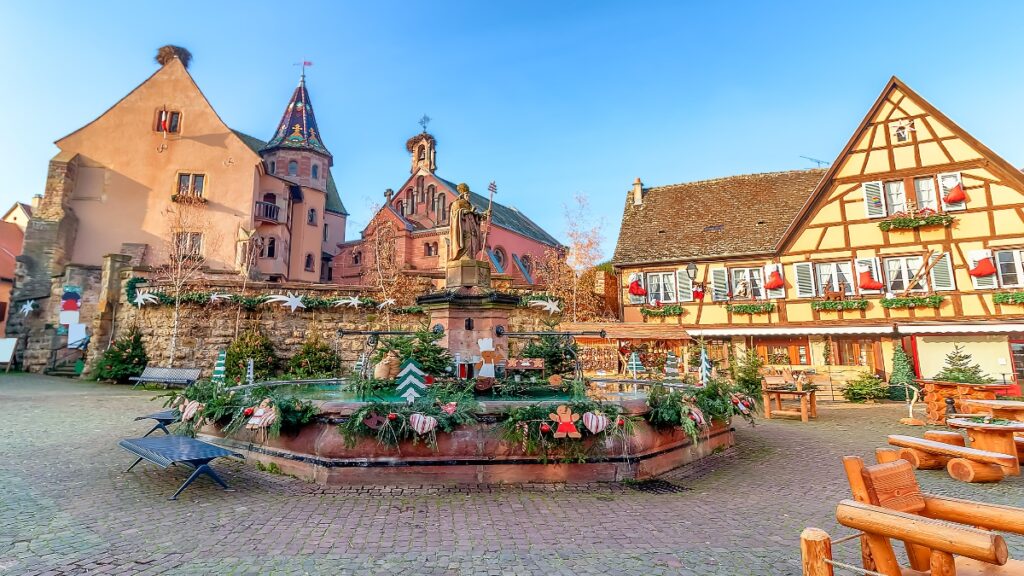
Authentic Rural French Living
Place of interest: The Saint-Léon IX Fountain marks the town center since 1257.
Local Crafts thrive in the workshops of Hunawihr, where skills pass from one generation to the next with care. While potters shape clay as their parents taught them, keeping ancient techniques alive through daily practice. These traditional methods now draw young artists eager to learn.
Local attraction: The fortified church hosts summer concerts.
Wine Culture runs deep in the heart of Ribeauvillé, where centuries of knowledge shape each vintage’s character. Though small paths wind through rolling hills where grape vines grow in neat rows tended by local families. Most important, these wines tell stories of the land and its people.
Local activity: You can also join a wine tasting tour of family-owned vineyards.
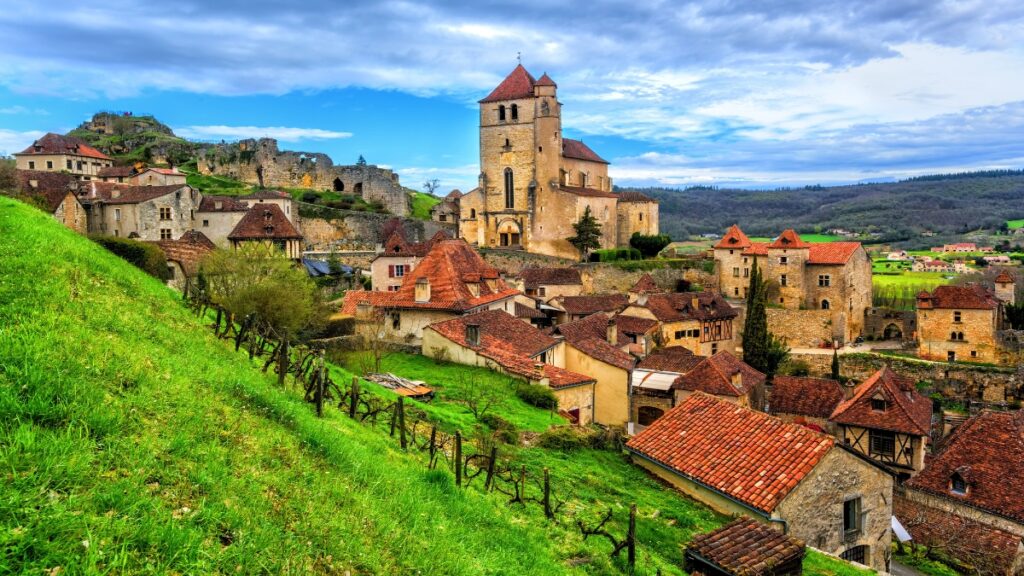
Picturesque French Countryside Towns Today
Traditional Ways and modern life blend seamlessly in the medieval streets of Saint-Cirq-Lapopie. where stone houses cling to dramatic cliff faces. Particularly stone houses cling to dramatic cliff faces, while local artists work in restored workshops maintain ancient traditions. Local artists work in restored workshops that once housed medieval craftsmen, while cafes serve regional specialties to visitors from around the world.
Exploring Classic French Rural Towns
Local attraction: The ancient market hall hosts weekly artisan markets.
Valley Views and river life shape daily routines in Collonges-la-Rouge, where red sandstone buildings glow in morning light. While each narrow lane reveals centuries of architectural heritage preserved by dedicated local residents. These French countryside towns maintain their unique character through careful preservation.
Discovering Hidden French Villages
Place of interest: Visit the Chapel of the Black Penitents built in 1635.
Ancient Skills flourish in the workshops of Moustiers-Sainte-Marie, where pottery traditions span more than three centuries. Master craftspeople shape local clay using techniques passed down through generations of skilled artisans. Modern designs now emerge from traditional methods.
Top tip: Additionally watch potters at work in studios along Rue de la Diane.
Mountain Heritage lives on in Bonneval-sur-Arc, where stone roofs shelter homes from winter snows. Even though many things change, the rhythms of alpine life continue in these remote French countryside towns. In addition, each season brings its own cherished traditions.
Local activity: Experience traditional cheese-making demonstrations from June to September.
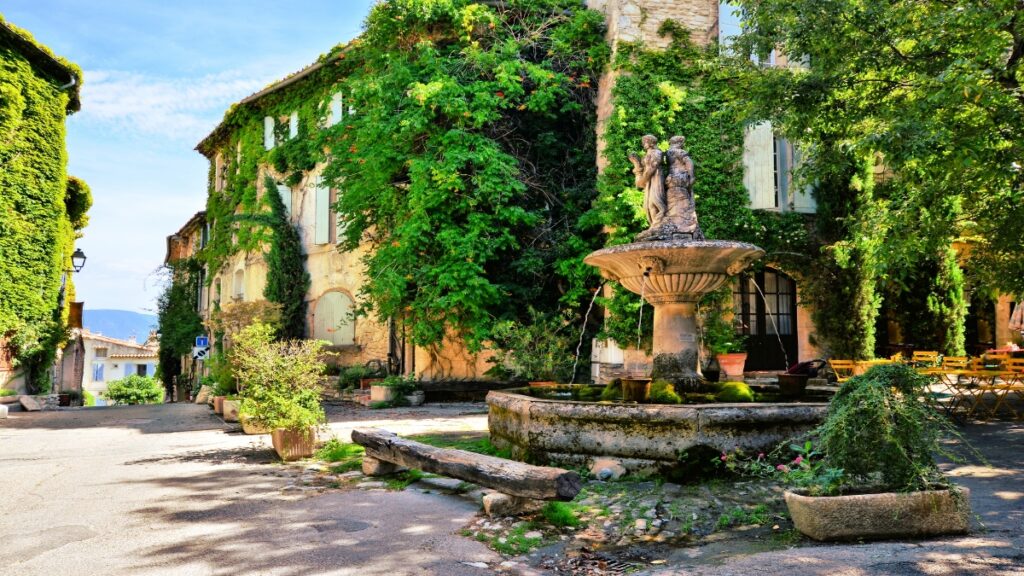
Experience French Countryside Towns and Local Life
Rural Accommodations and Local Welcome create lasting memories in Angles-sur-l’Anglin, where historic homes also open their doors to guests. Restored farmhouses offer authentic stays among lavender fields and ancient stone walls. While friendly hosts share stories of French countryside towns through generations.
Traditional French Village Stays
Top tip: Book traditional guesthouses during spring for wildflower season.
Village Festivals and Gatherings fill the calendar in Montsoreau, where Loire Valley traditions come alive through seasonal events. Though French countryside towns each have unique customs. Local wine growers welcome visitors to centuries-old cellars carved into limestone cliffs. In addition, these celebrations mark the rhythm of rural life.
Authentic French Rural Experiences
Place of interest: The riverside château museum showcases Loire Valley history.
Local Flavours define dining in Lavardin, where restaurant gardens supply fresh herbs and vegetables year-round. Therefore each meal tells stories of regional recipes and time-honoured cooking methods that shape daily life. Compared to the past, young chefs bring fresh ideas to traditional dishes.
Local attraction: Visit the medieval fortress ruins at sunset.
Artisan Workshops preserve skills in Apremont-sur-Allier, where blacksmiths and woodworkers maintain ancient crafts. The sound of hammers and chisels echoes through narrow streets just as it has for centuries. Most important, these French countryside towns keep old ways alive through daily practice.
Local activity: You can also join morning bread-making sessions at the village bakery.

